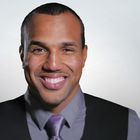
 Author Arel Moodie is the founder of the Art of Likability, which provides research on leveraging likability for business success. Arel hosts a weekly podcast on his likability research on iTunes that is listened to in over 140 countries. You can reach him at www.artoflikability.com or info@artoflikability.com.
Author Arel Moodie is the founder of the Art of Likability, which provides research on leveraging likability for business success. Arel hosts a weekly podcast on his likability research on iTunes that is listened to in over 140 countries. You can reach him at www.artoflikability.com or info@artoflikability.com.
The world is becoming more transparent. Social media and review sites like Yelp and Glassdoor.com allow for people to voice their opinions with a megaphone. As a result, the best talent won't want to work for your organization if it has a bad online reputation. Prospective clients won't want to do business with you if they don't like the review they read. Investors will shy away from you if your social media page is unfavorable. And you won't get a promotion if your higher-ups don't like how you fit into the corporate culture.
The Importance of Likability
Likability is one of the most if not the most important aspect of your success in today's professional world. Think about it from every professional perspective. Would you really want to spend time with people you don't like? I know I don't. Years ago, there were communication silos in most organizations. If something didn't go right, there was no real place to voice your disapproval to those who mattered.
But the saying, "It's not what you know, it's who you know" no longer applies. In today's business world, it is not just what you know or who you know. What matters most now is who knows you AND who likes you. Every business decision from hiring to firing begins with a simple premise: "Do we like and trust this person?"
Likability doesn't mean you have to compromise your integrity, be fake or manipulate people. It's about getting the most out of the people around you and increasing your bottom line. Likability is merely a tool; one of your most important tools in your toolbox. If I speak two languages and the person I'm speaking to only speaks English, speaking to them in Spanish won't be effective. Though I'm communicating, I'm communicating using a language tool that is not appropriate for my intended audience. Likability is just another tool to communicate your message and more effectively reach your goals. It is a learnable skill.
To be clear, likability is not a replacement for a job well done. Being likable but doing a poor job won't get you anywhere. You must deliver on your promises and be able to do your work at a high level. Just think of how many students are graduating college each year and entering the competitive space of your industry. When you add likability to your current skill set, you put a moat around your business and your professional life that your competitors won't be able to touch because of the human element.
Dramatically Increasing Your Likability
So where should you start if you want to dramatically increase your likability right now? Learning to ask more questions and listening are quintessential traits of likability. Ask how you can help; ask for feedback; simply ask someone how their day is and genuinely listen. In a study of over 50,000 executives, Jack Zenger and Joseph Folkman of Zenger/Folkman found that "leaders who ask for feedback are better liked and more effective than those who don't." Asking for feedback does not mean you are second-guessing yourself. It shows that you trust the input of your team. It makes them feel valued. People stay where they feel valued. Remember, people don't quit jobs -- they quit bosses.
Ask your team members how you can best support them. Listen to their responses and take the appropriate action. When you ask this, there may be nothing at the time that they need from you. But simply asking shows you care, which is invaluable. Try calling up three of your top clients and ask them how you can better serve them.
Directly asking someone for feedback is an underutilized strategy that is extremely powerful. Set a reminder in your calendar at least once a month to connect with your immediate team members and top clients to ask for feedback and watch your likability sky rocket. Just make sure to not to get defensive when you hear what they have to say.
Remember, without likability, presidents don't get elected; without likability, people don't get raises; without likability, companies can't attract top talent. The future of your professional life hinges on how well you pick this up in the future.
